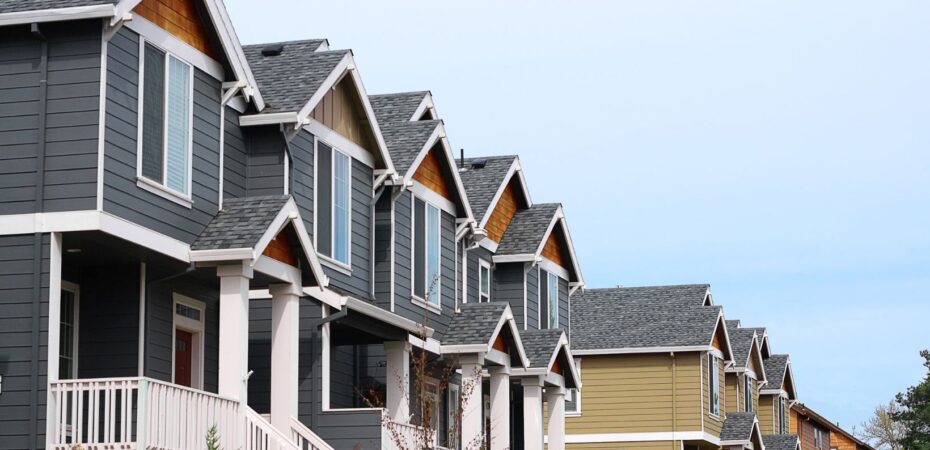Have you ever wondered what makes the real estate markets in Morocco and Egypt stand out in the vast landscape of global property investment? Nestled in the heart of North Africa, these two countries offer unique opportunities that are as intriguing as the rich history that carpets their lands. Whether you’re an investor looking for the next big opportunity or a homebuyer dreaming of a place in the sun, Morocco and Egypt have something to offer.
Understanding the Basics
In exploring the real estate markets of Morocco and Egypt, it’s crucial to first understand their appeal to both local and international investors. Both countries boast strategic geographical locations, with Morocco serving as a gateway between Europe and Africa, and Egypt acting as a bridge to the Middle East. These locations provide unique economic opportunities influenced by a mix of African, Arab, and Mediterranean cultures. Additionally, both markets benefit from diverse real estate portfolios that cater to various preferences and budgets, ranging from luxury properties in major cities to affordable housing in developing areas. Understanding these basic dynamics is essential for anyone looking to engage with the real estate sectors in Morocco and Egypt.
Key Factors Driving the Markets
Several key factors are driving the real estate markets in Morocco and Egypt, making properties in these countries attractive investment opportunities. In Morocco, the surge of interest in property for sale in Morocco can be attributed to government initiatives aimed at improving infrastructure and boosting tourism, which in turn increases the demand for both residential and commercial properties. Economic stability and progressive reforms have also played a crucial role in attracting foreign investments and encouraging local market growth. Meanwhile, in Egypt, the government’s mega-projects, such as the development of the New Administrative Capital, are creating new hubs for business and residential life, thereby driving the real estate market forward.

Additionally, both countries are experiencing a rise in urbanization, with a growing middle class that is increasingly seeking quality housing and investment opportunities. These factors collectively contribute to dynamic and evolving real estate markets in Morocco and Egypt.
Morocco’s Real Estate Landscape
Morocco’s real estate landscape is a dynamic and evolving market characterized by a diverse array of property options that cater to a wide range of tastes and budgets. In cities like Marrakech, Casablanca, and Tangier, the market features everything from luxurious villas and high-end apartments to more traditional riads in the medina, which appeal to both domestic buyers and international investors. The Moroccan government has been proactive in promoting real estate development, particularly in tourist-frequented areas, to enhance urban appeal and boost economic growth. This includes significant investments in infrastructure such as roads, airports, and public facilities that enhance the overall attractiveness of the real estate sector.
Moreover, Morocco’s strategic geographic location as a gateway between Europe and Africa adds to its appeal, drawing in investors looking for potential growth in a stable and culturally rich environment. The introduction of more flexible property laws and investment incentives has also helped fuel the market’s expansion, making it easier for foreigners to purchase and invest in property. As a result, Morocco’s real estate landscape continues to thrive, offering promising opportunities for investment and a desirable lifestyle to residents.
Egypt’s Property Market
Egypt’s property market is experiencing significant growth, driven by both governmental initiatives and a burgeoning population. Major projects like the development of the New Administrative Capital are shifting the urban landscape, creating new investment opportunities in both commercial and residential sectors. This project aims to alleviate congestion in Cairo, attract foreign investment, and provide modern, high-quality living and office spaces. Additionally, Egypt’s strategic location as a bridge between Africa and the Middle East enhances its appeal to investors looking for access to multiple markets.
The market is also supported by Egypt’s improved economic policies, which include reforms aimed at attracting foreign direct investment and stabilizing the economy. These factors, combined with a sustained increase in demand for housing due to population growth, make Egypt’s property market a vibrant arena for potential investors and homebuyers seeking new opportunities in a historically rich setting.
Legal Aspects of Buying Property
Navigating the legal aspects of buying property in a foreign country can be complex, but understanding the basics is crucial for a smooth transaction. In many countries, the process starts with securing a reliable local lawyer who specializes in real estate law to ensure all local regulations are adhered to and your interests are protected. Typically, the process involves conducting due diligence to confirm the property’s legal status, including checking for any liens or encumbrances that may affect the title.
Once due diligence is completed, the buyer usually signs a preliminary contract and pays a deposit, setting the terms for the final sale. This is followed by the preparation of the official sales agreement, which needs to be notarized in many jurisdictions. Finally, the transfer of ownership is registered with the local land registry, which formally recognizes the buyer as the new owner. Throughout this process, understanding and complying with local tax laws is also essential, as there are often taxes and fees associated with property transactions that can significantly affect the overall cost.
The Role of Tourism in Real Estate
Tourism significantly impacts the real estate markets in tourist-heavy countries, particularly evident in the case of Egypt. Egypt real estate often conjures images of luxury beachfront villas, resort properties, and historic homes close to major tourist attractions like the Pyramids and Luxor. The influx of tourists not only boosts demand for these types of properties but also drives the development of hotels, shopping centers, and entertainment venues, which in turn increases property values in these areas.

Furthermore, as tourism grows, so does the infrastructure surrounding it, including better roads, airports, and public services, all of which make real estate more attractive to both investors and residents. Developers in Egypt are quick to capitalize on this trend, often planning integrated developments that offer both residential and commercial properties with amenities geared towards tourists, such as spas, restaurants, and cultural activities. This symbiotic relationship between tourism and real estate development helps fuel the economy and creates a dynamic market for property investment.
How to Get Started in Morocco and Egypt
Getting started with real estate investment in Morocco and Egypt requires an understanding of both markets and adherence to specific procedures. Initially, it’s beneficial to conduct thorough research or engage with local real estate experts who can provide insights into the most promising locations and types of properties. This might involve attending real estate fairs, connecting with local agencies, or participating in investment forums online.
In Morocco, the process typically starts by identifying a property and then working with a notaire (a government-appointed lawyer) to ensure all legal aspects are handled correctly. In Egypt, securing a local lawyer who can navigate the complex bureaucratic landscape is crucial. They will assist with checking the property’s legal status, ensuring there are no outstanding disputes or liens, and complying with local regulations concerning foreign ownership.
Once you select a property, negotiating the terms and finalizing the purchase agreement are next, followed by the transaction’s official registration. It’s also wise to understand the tax implications and potential costs involved in property transactions in both countries, as these can affect the overall investment. By taking these steps, you can confidently embark on real estate ventures in Morocco and Egypt, potentially yielding significant returns.


 By
By 





